
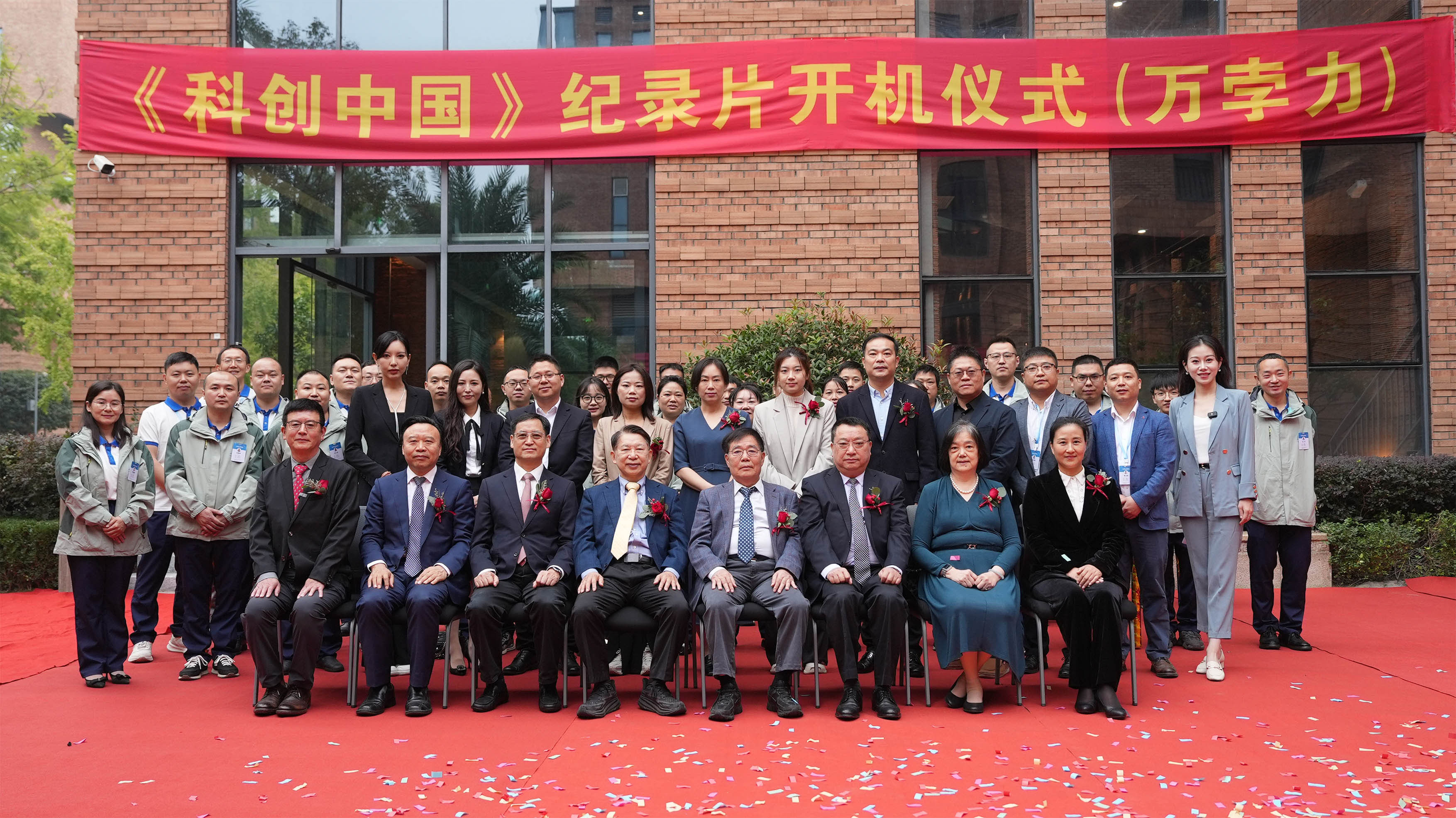
Brief: Low-Intensity Pulsed Ultrasound (LIPUS), developed and produced by Beijing Wanboli Company, is a leading-edge technology in medical devices, with Wanboli Medical Group recognized as an innovator in the industry. The company is honored to be featured in CCTV's "Science and Innovation China" episode 52. Being included in this prestigious innovation program is a strong acknowledgment of Wanboli's achievements in the field of technological innovation and highlights its pioneering role in the industry. This recognition not only honors Wanboli's past accomplishments but also serves as a great encouragement for future innovation and development.
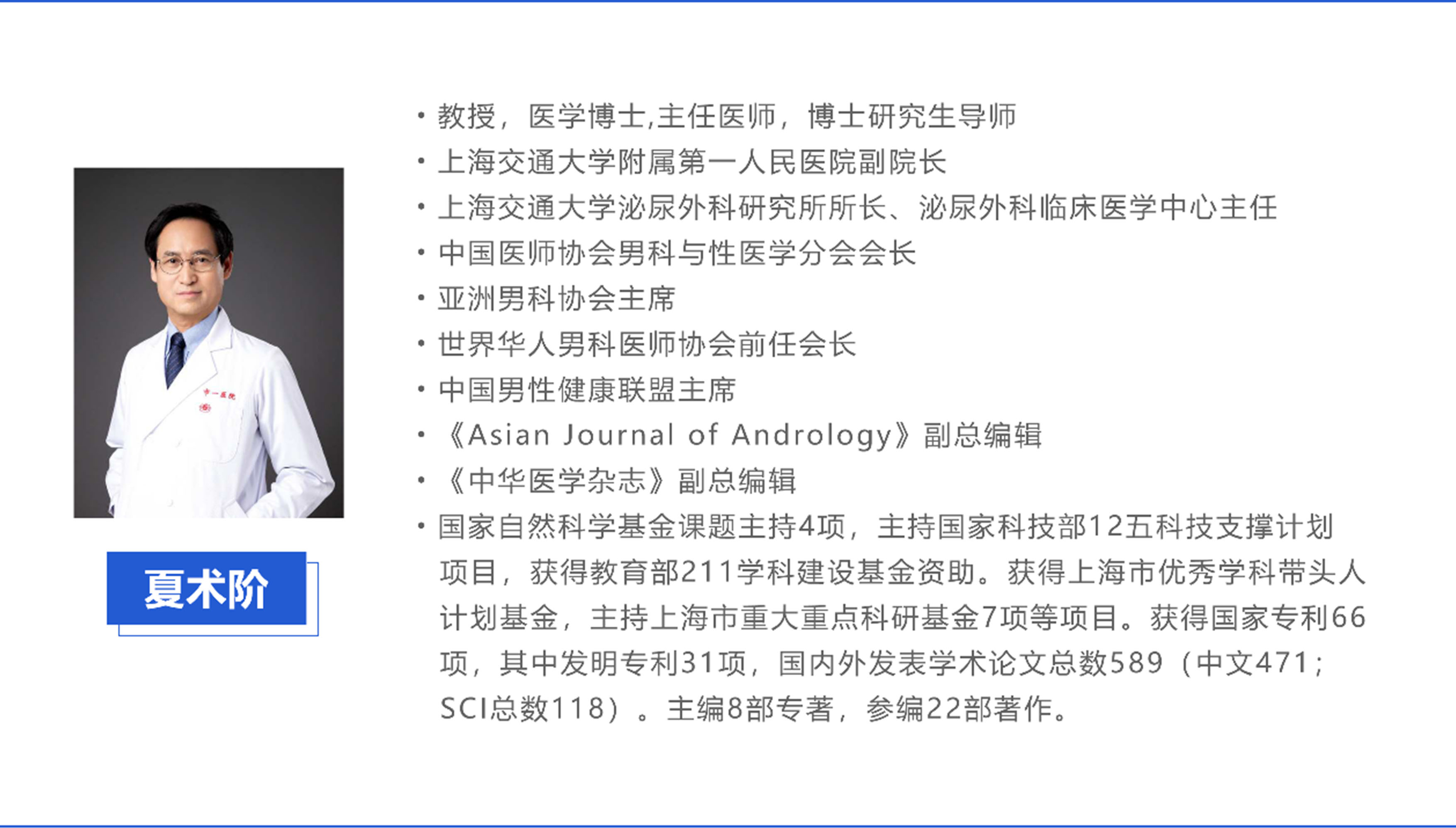
Professor Xia Shujie, from Shanghai First People's Hospital, was interviewed by CCTV's "Science and Innovation China" to discuss the advancement of LIPUS technology, leading the way for breakthroughs in male health diagnosis and treatment.
As a leading figure in China's urology field and internationally renowned minimally invasive technique expert, Professor Xia Shujie has also proposed the "National Innovation and Re-Innovation" concept for LIPUS technology. In the program, Professor Xia deeply explained the latest mechanisms of LIPUS technology and clinical breakthroughs, showcasing China's cutting-edge achievements in medical science and technology.
LIPUS Mechanism Innovation Breakthrough—
A New Concept in Treating Erectile Dysfunction (ED) by Activating Endogenous Stem Cells via Mechanical Force
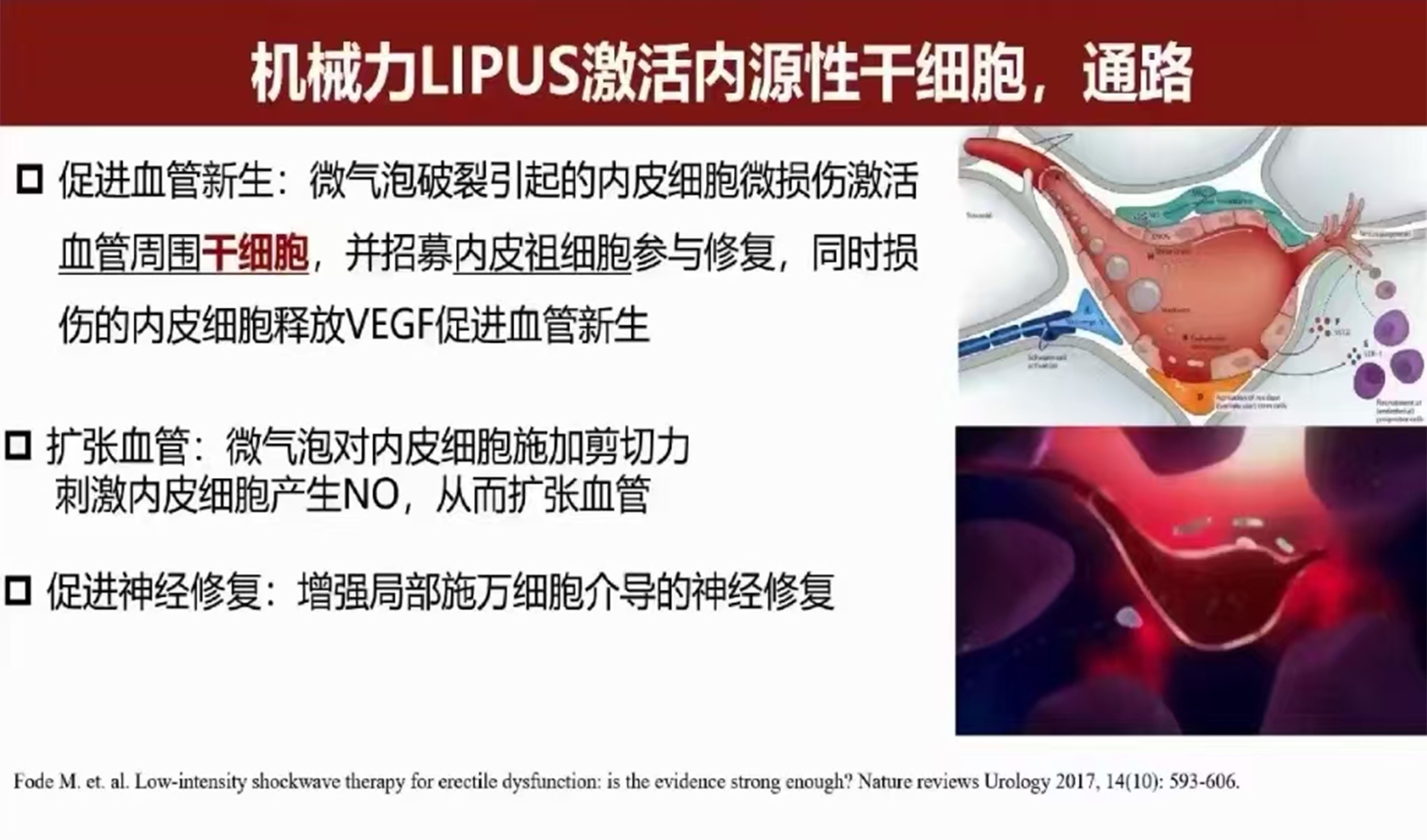
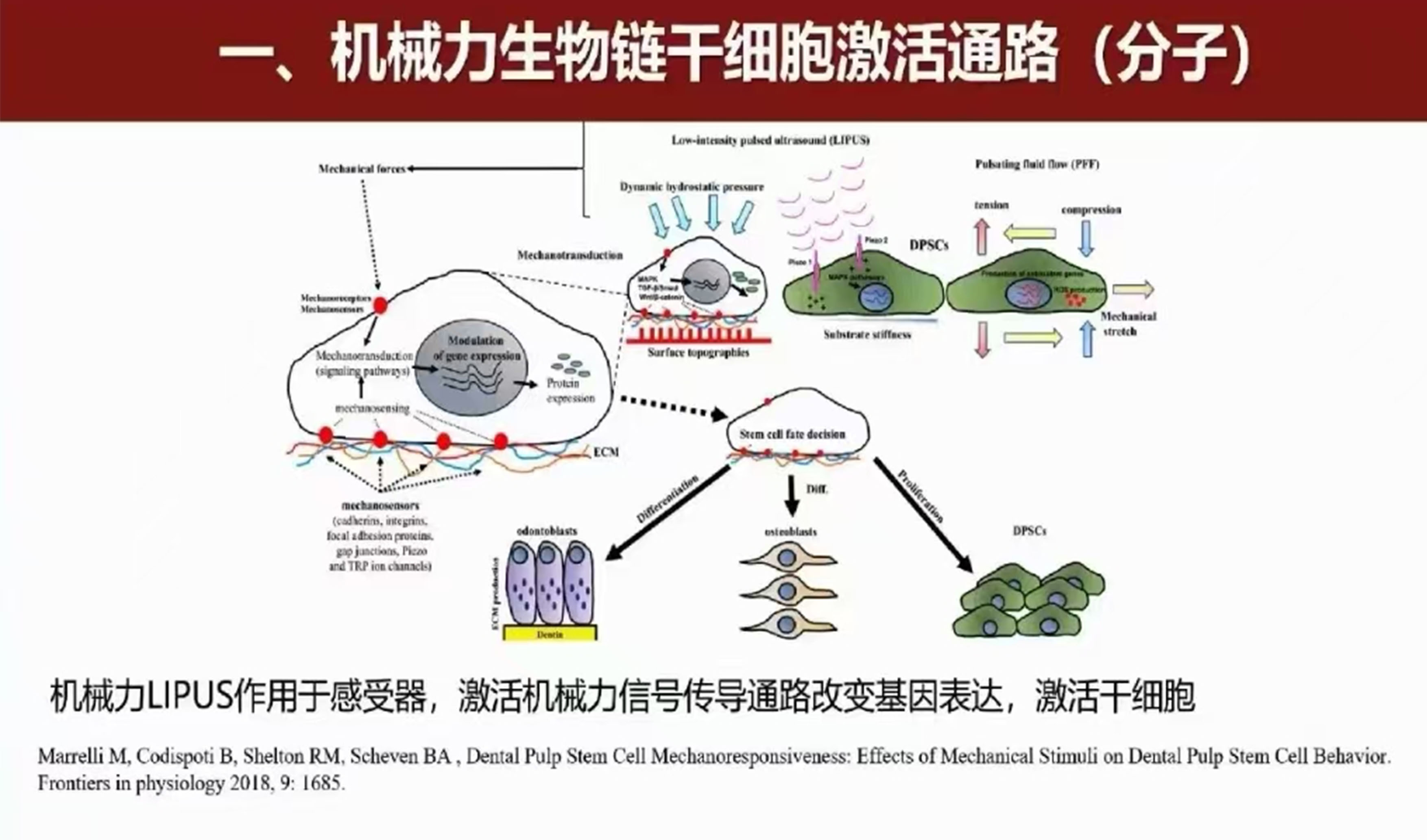
Professor Xia Shujie published an article titled "Research Progress on Mechanical Force Biochain Endogenous Stem Cell Activation for Treating Erectile Dysfunction." Low-intensity pulsed ultrasound activates dormant endogenous stem cells within human tissues through mechanical force, promoting their proliferation and differentiation. This leads to the generation of smooth muscle, vascular endothelial, and nerve cells, which help repair penile cells and tissues. This provides strong theoretical support for the safe and effective treatment of ED with LIPUS, improving the pathology of ED patients’ cavernous tissues, making it an ideal treatment for ED that targets both the symptoms and underlying causes. This paper was published in National Medical Journal of China (July 14, 2020, Vol. 100, No. 26).
LIPUS Mechanism Innovation Breakthrough—
The Regenerative Potential of LIPUS for Peripheral Nerves: Promoting Penile Nerve Regeneration
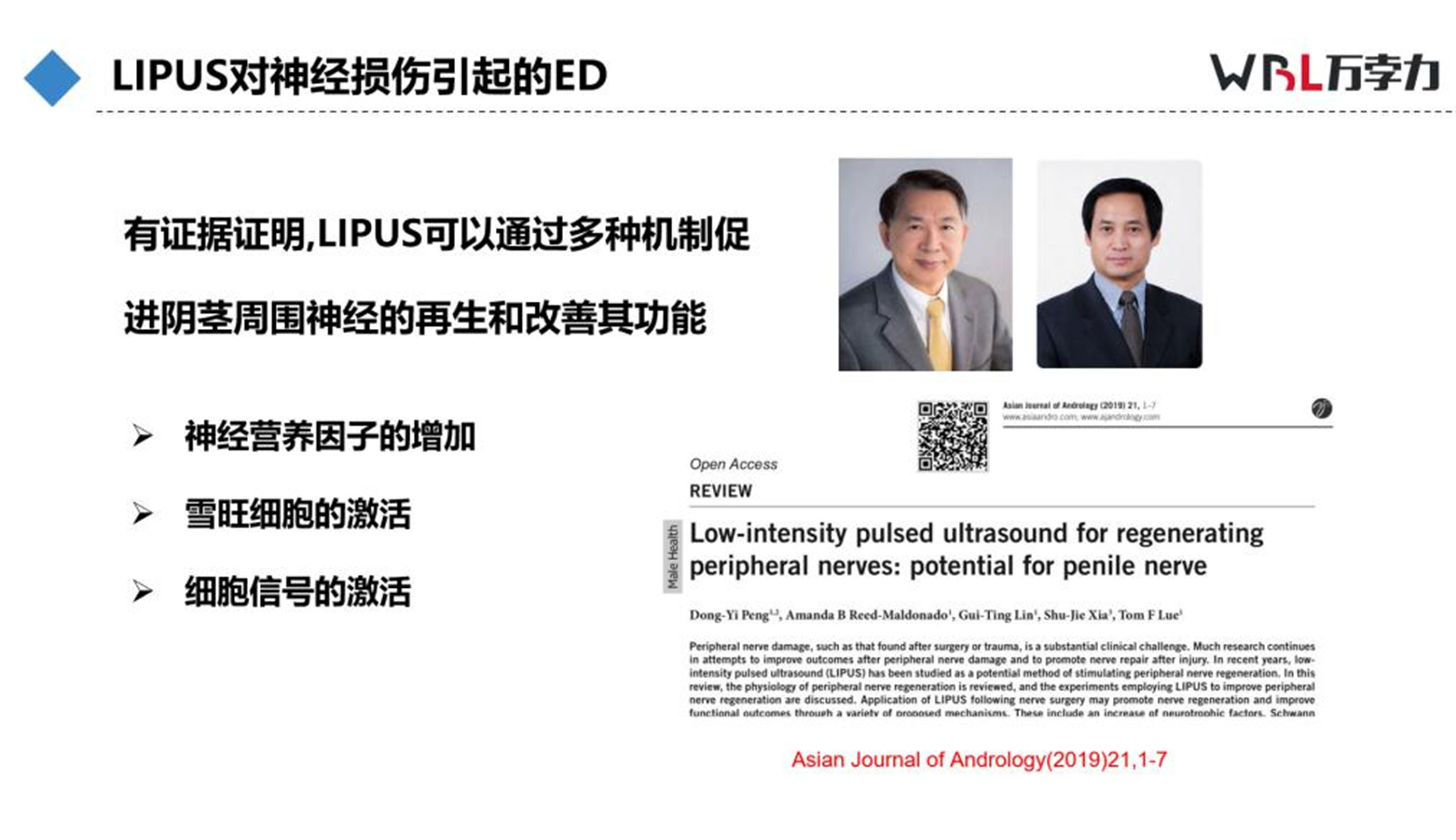
LIPUS has the ability to promote and improve the regeneration of peripheral nerves, including penile nerves, through various mechanisms. This provides strong laboratory data supporting the clinical effectiveness of LIPUS and reshapes scholars' understanding of LIPUS. Peripheral nerve damage after surgery or trauma remains a significant clinical challenge. Numerous studies continue to explore ways to improve the outcomes of nerve damage and promote nerve repair after injury. Professor Xia reviewed the physiological mechanisms of peripheral nerve regeneration and discussed experiments using LIPUS to promote nerve regeneration. After nerve surgery, LIPUS can stimulate peripheral nerve regeneration and improvement through various mechanisms, including the increase of neurotrophic factors, activation of Schwann cells, cell signaling activation, and induction of mitosis.
LIPUS International Academic Exchange Breakthrough—
Domestic and International Experts Gather to Explore the Non-Invasive Treatment Prospects of LIPUS
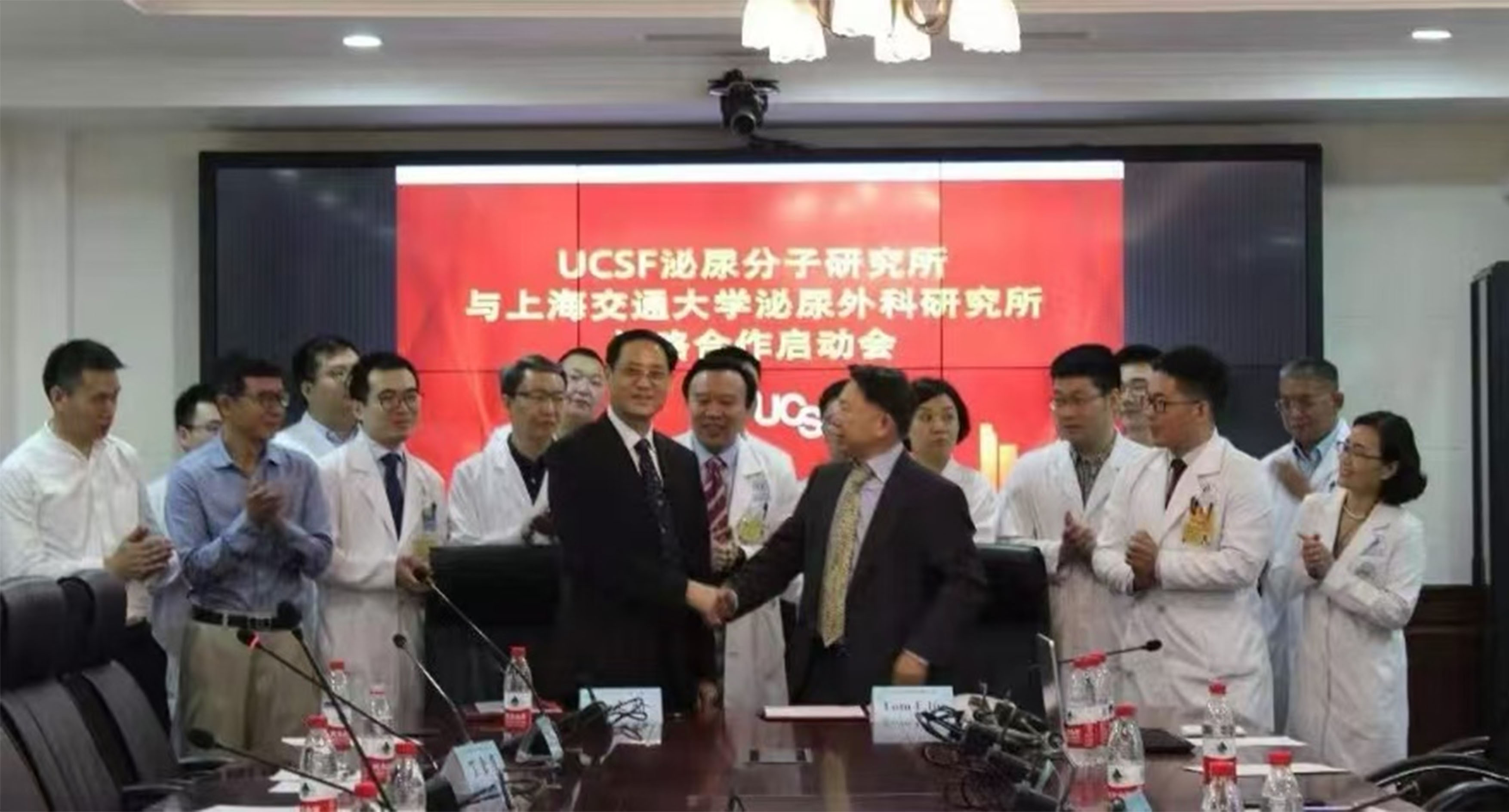
On July 4, 2019, the Urology Department of Shanghai Jiao Tong University signed a strategic cooperation agreement with the University of California, UCSF, to jointly explore basic medical research, translational medicine, and clinical medicine. The focus is on the biological mechanisms of micro-energy medicine and its application in regenerative medicine, conducting internationally leading research and development. The new method of treating erectile dysfunction with low-intensity pulsed ultrasound (LIPUS), which activates endogenous stem cells, is truly transitioning from invasive to non-invasive treatment, realizing a promising treatment future.
LIPUS Clinical Application Breakthrough—
"Effectiveness and Safety of Different Frequencies of LIPUS in Treating Mild to Moderate ED: A Multicenter, Open-Label, Randomized Controlled Study"
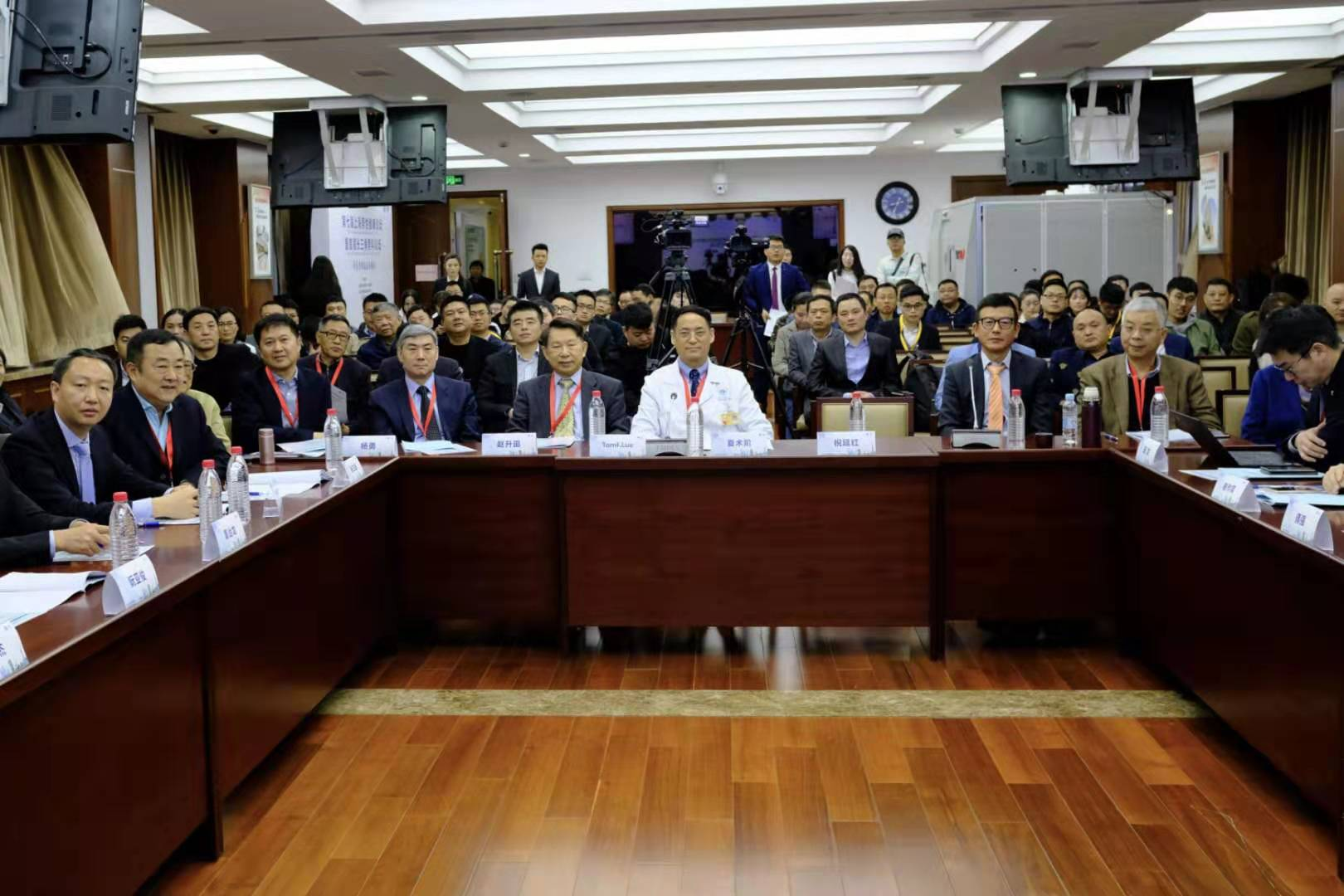
The initiators of the "National Innovation Upgrade" project, led by Professor Xia Shujie’s team at Shanghai First People's Hospital, along with Professor Tom F. Lue’s team from the University of California, San Francisco, and key hospitals across China (including Wenzhou Hospital of Integrative Medicine, Changchun University of Traditional Chinese Medicine Affiliated Hospital, Zhejiang University School of Medicine Second Affiliated Hospital, Nanjing University Medical School Affiliated Gulou Hospital, Tianjin Medical University General Hospital, and West China Medical University Fourth Affiliated Hospital), published an article titled "Effectiveness and Safety of Different Frequencies of LIPUS Treatment for ED: A Multicenter, Open-Label, Randomized Controlled Clinical Study" in Sexual Medicine journal. The study implemented a multicenter, open-label, randomized controlled trial to compare the efficacy and safety of two different frequencies of LIPUS treatment for mild to moderate ED, exploring the optimal treatment frequency and time cost while ensuring effectiveness and safety. Despite the challenges posed by the pandemic, the study treated 320 patients over one year and seven months.
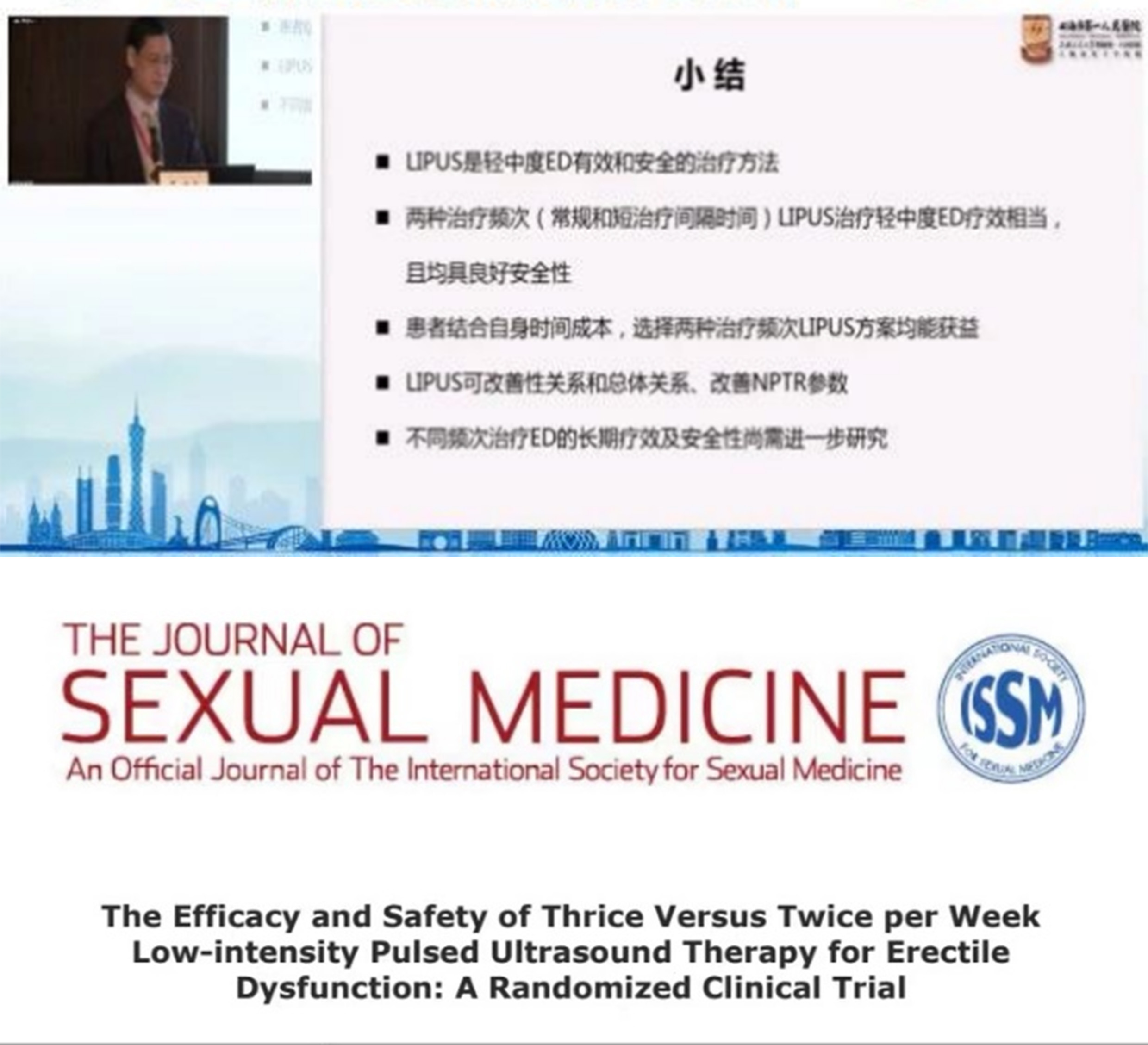
The study met the non-inferiority research expectations, showing that both weekly treatment protocols (3 times per week and 2 times per week) were safe and effective for mild to moderate ED, improving erectile function, hardness, satisfaction, self-confidence, and sexual relationships. The 3 times per week regimen achieved similar results to the 2 times per week regimen in a shorter time. The efficacy differences between the two treatment frequencies were not influenced by the severity of ED, age, or the presence of underlying health conditions. LIPUS has advantages of being safe, effective, non-invasive, and improving ED symptoms pathologically, positioning it as the "gold standard" in micro-energy medicine treatment for ED.
LIPUS Technology Breakthrough Now Included in the
"Erectile Dysfunction Diagnosis and Treatment Expert Consensus"
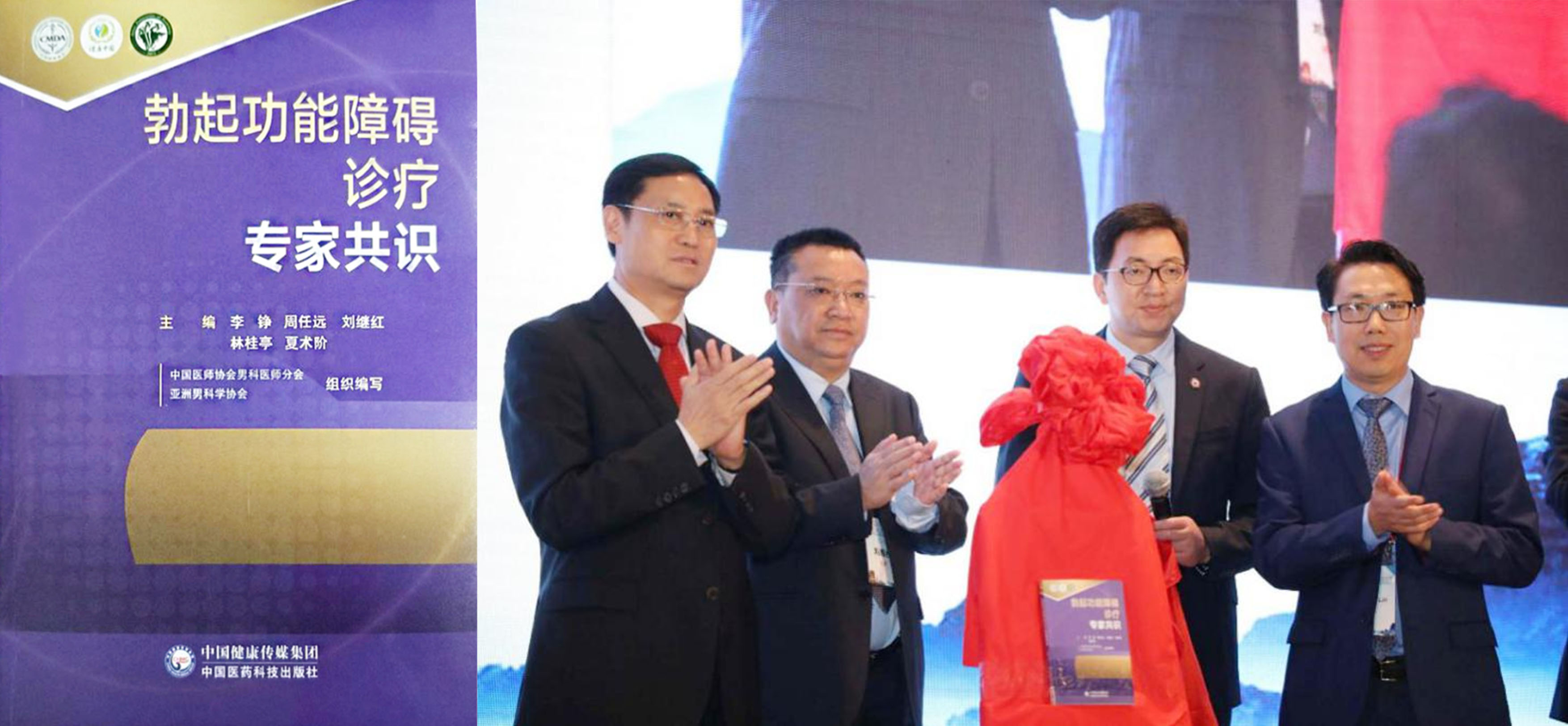
The low-intensity pulsed ultrasound (LIPUS) model for treating erectile dysfunction is now officially a new first-line clinical treatment option in top-tier hospitals across China. This treatment standard has been incorporated into the Erectile Dysfunction Diagnosis and Treatment Expert Consensus, compiled by the Chinese Medical Association Urology Branch and the Asian Society for Sexual Medicine.
Staying True to Our Original Intent, Striving Forward—
Continuing Progress in Innovation

LIPUS offers significant advantages, including non-invasiveness, high efficiency, safety, and ease of acceptance by patients. Through continuous clinical trials, Wanboli and its expert team have thoroughly proven that LIPUS can safely and effectively treat erectile dysfunction in a non-invasive manner. It is believed that in the near future, LIPUS will lead a new field—micro-energy medicine. With further research and application, this innovative technology will promote the development of micro-energy medicine and bring new hope to ED patients, helping to alleviate men’s “difficult-to-discuss” concerns and provide a path to a happier life.